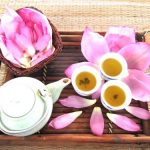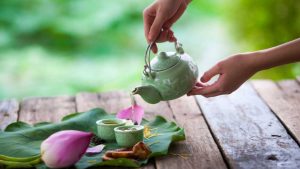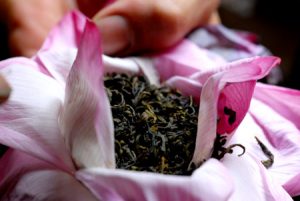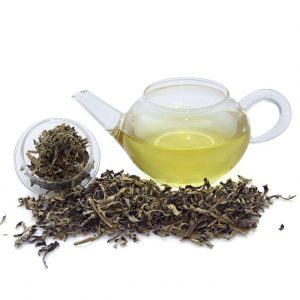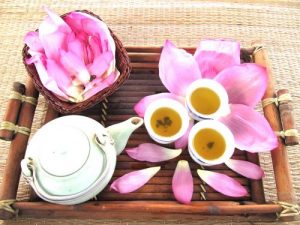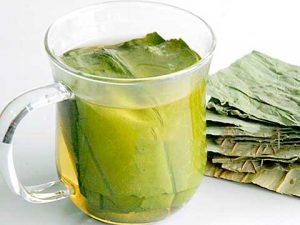Lotus Tea
Lotus tea is a beneficial herbal tea prepared using the flowers, leaves, seeds or roots of the sacred lotus plant. Packaged lotus green tea is also available where lotus blossom extract is mixed with high-quality tea leaves for a refreshing aroma. There are numerous health benefits of the tea, with more researches being conducted every day.
History and Origin
Lotus tea originated in Vietnam, where the flower symbolizes purity, beauty, and good fortune. Being one of the most ancient teas of this country, it is still made in the traditional way with special care to preserve its medicinal properties.
Health benefits of lotus tea: What is it good for
Stress buster and antidepressant
The sedative properties of lotus tea help to relax, relieving stress. Its calming effects produce a soothing effect that can alleviate heart palpitations and restlessness while also helping people with sleep problems like insomnia.
Studies by several Japanese universities reveal that two extracts from sacred lotus, liensinine and isoliensinine, possess anti-depressant effects.
Effects on cholesterol
It is believed to help in preventing absorption of fats in the body, thereby helping in the management of cholesterol.
Protects the heart
The lotus leaf contains flavonoids and tannins which are powerful antioxidants, being effective in protecting the heart. Lotus leaf tea may also be effective in increasing the coronary blood flow and reducing blood pressure. This, along with its considerable vitamin C content, makes the tea possibly effective in reducing the chances of various cardiovascular diseases and stroke.
The linoleic acid in lotus may also contribute to a better heart health, while maintaining proper blood sugar levels, being potentially beneficial for those with diabetes.
Detoxifying effects
Its detoxifying properties may help in toning and protecting the liver and spleen. Lotus is also known to be effective in destroying free radicals, thus maintaining healthy organs and skin.
Gastrointestinal problems
Its antispasmodic properties aid in digestion, relieving problems such as diarrhea and stomach cramps. Lotus leaves also stimulate bile and hydrochloric acid production, with the combination of the two found to help with indigestion and flatulence.
Anti-inflammatory properties
The leaf tea is known to help with inflammatory conditions such as arthritis, reducing symptoms like redness, swelling and pain.
Controls bleeding
The astringent properties of lotus leaf can help stop bleeding, which might make it beneficial for problems such as blood in urine, blood in vomit, and excessive menstrual bleeding. Quercetin and other flavonoids in the lotus plant act as an anti-hemorrhagic agent.
Effects on weight loss
As it helps in preventing fat absorption, the tea may prove to be effective in weight reduction. Additionally, lotus leaf contains l-carotene which is known to boost metabolism thus, helping in shedding extra weight, making it a potentially effective slimming tea.
Storehouse of vitamins and minerals
It also contains certain B-Vitamins which are beneficial for fertility, while also improving energy and vitality. Certain components in lotus, such as vitamin C and linoleic acid, may even make it useful for preventing cancer; however, more research is needed to confirm it.
The flower is a rich source of Iron, making it possibly beneficial for anemia. Its phosphorus content may contribute to strong bones when the tea is regularly consumed with other phosphorus rich foods.
Studies are being carried out to find out the potential anti-aging properties of the herbal decoction.
Applying the tea or the used leaves on skin problems such as ringworm and athlete’s foot may help in reducing the infection, due to the antifungal and anti-bacterial properties of lotus.
Safety and Precaution
Side effects of lotus tea
Usually, there are no side-effects when it is taken as part of a normal diet, but excess consumption might lead to some adverse effects.
Lotus tea during pregnancy
Caffeine free lotus tea is generally safe for pregnant and breastfeeding women. However, it is always recommended to consult a medical practitioner before consumption.
How to prepare lotus tea from the flowers and leaves
- Stir two teaspoons of dried flower and leaves into 500 ml of boiled water
- Steep for about five minutes.
- Strain the tea, add sugar or honey if desired. Lotus flower tea has a lovely sweet aroma.
Where to buy
Lotus green tea is readily available in stores as well as online. You can also buy dried lotus flower and leaves from herbal stores while dried seeds are also sold in the form of tea.
Article was last reviewed on 6th December 2022
Related Articles
Leave a Reply
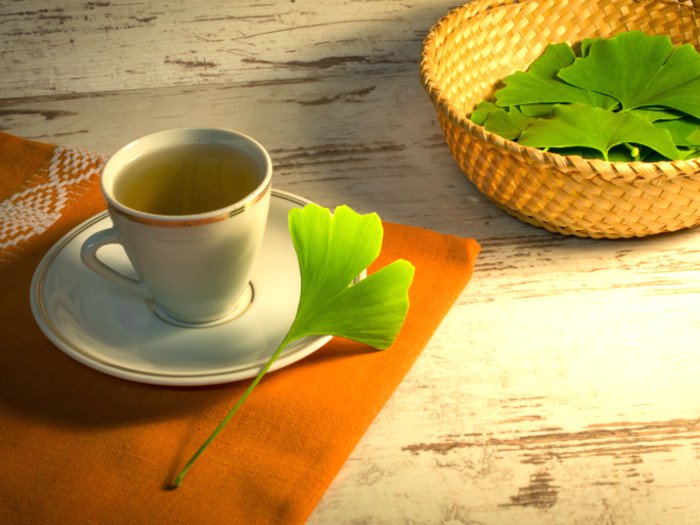
Ginkgo Biloba Tea
The Ginkgo Biloba tea is an herbal infusion obtained from the extract of the dried leaves
Read more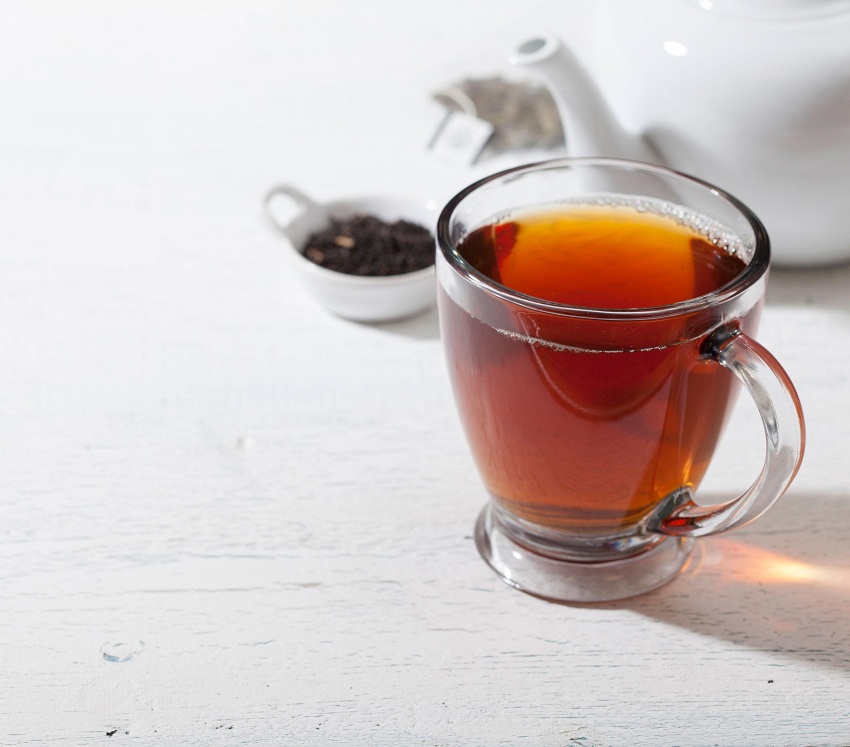
Black Tea
Black tea, belonging to the same group as the green, white and oolong teas is the most oxi
Read more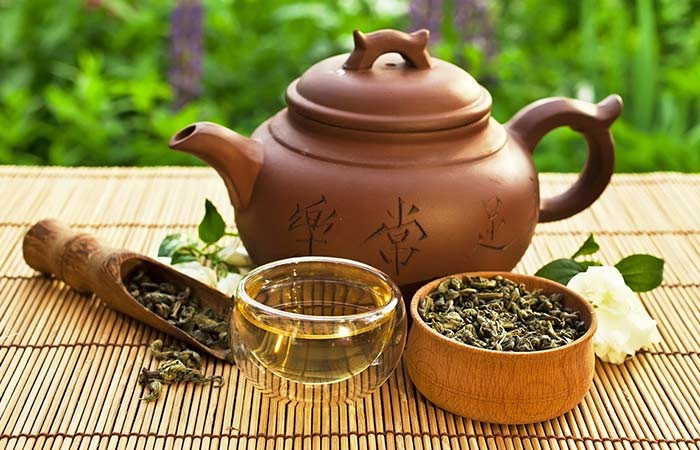
Oolong Tea
What is oolong tea Oolong, a traditional beverage of China, is prepared from the buds, st
Read more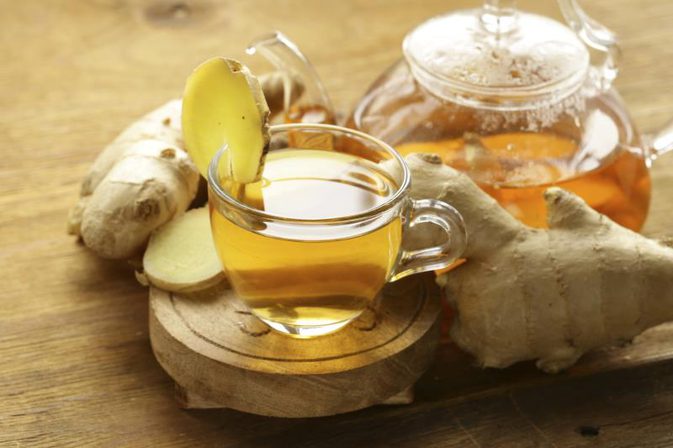
Ginger Tea
Ginger tea, prepared from the roots of ginger, is a popular herbal beverage of Asia. Becau
Read more
